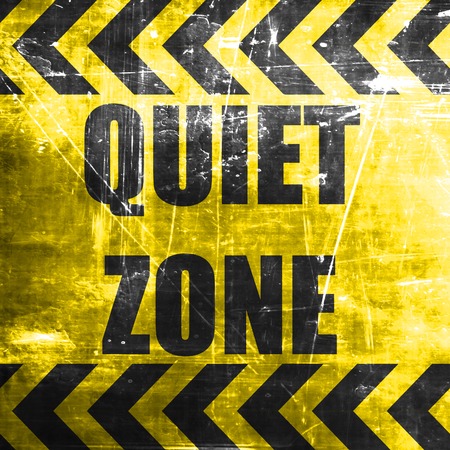Be Quiet! Zip it! Shush!

There are times when we just need everyone to shut up. But, of course, it's not polite to actually say this.
It is important to remember that everyone wants to be heard and acknowledged. Unfortunately, this basic human need overshadows civility at times.
Situations that call for one noise to be heard over another, or for complete tranquility, require that everyone involved be mindful of the goings on around them. In the absence of mindfulness from one or both parties involved, etiquette must intervene.
The Misunderstood Request
At times when silence would be golden, the request for it can come across as rude as the noise violation itself.
A relative recently shared that when performing in a choir, she saw that some of the members didn’t realize the choir’s performance was about to be recorded and were talking. Too far away to get their attention by speaking, she made the "zip it!" sign with her fingers across her lips. They frowned and were silent, and later they expressed resentment. She tried to explain, but that annoyed them more.
The question posed to me was: "Why were the girls so angry afterwards as I tried to explain myself?"
Has this ever happened to you? You said something that is interpreted as sarcastic or inconsiderate. There was a perfect explanation and you didn’t mean to cause harm.
If you do make a “zip it” category blunder, what’s required is to first apologize without attaching the explanation to it. To the upset girls in the choir, Hannah might say, "I’m very sorry that I made the 'zip it' sign." [pause] "I didn’t mean it the way it looked. I was trying to save us from having to begin the song again."
Asking Others to Be Quiet
Whether you're in church, a book reading at a coffeehouse, or an outdoor concert, when people close by are chatting loudly you become aware that you need to say something.
How do you make your request while maintaining and encouraging civility? The general rules are:
- Be friendly
- Be polite
- Be respectful
- Never angry
Remember, by asking others to be quiet, you're asking them to set aside their need to be heard. (And for some people, their deep, personal need for attention.)
In addition to the general rules above, you might also try:
- Setting a good example yourself. Are you exhibiting the behavior you are requesting?
- If the situation is informal, try to catch the eye of one of the noisy group , and with a smile on your face, raise your finger to your lips and make a silent “shh” gesture. (Be sure you are smiling.) Or whisper if you are sitting close by, “Sorry for interrupting you, but may I ask you to lower your voice(s). I'd really like to hear this.”
- If you know one of the people and feel comfortable doing so, walk over and greet her and, extending your focused glance around the group, and smiling, ask them if they could lower the volume level a little.
- Be sure to say, “Excuse me” first, as you are interrupting their conversation in order to lodge your request.
- Offer an excuse. For example, “I’m trying to study for an exam,” or “It’s really important that we not be distracted.”
- Close out the request with “Thank you.”
- If the noise continues, mention the interruption to management if the situation allows.
Zipping it Up
There are many idioms you can use in the "Be Quiet!" category:
- "Put a cork in it!"
- "Shut up!"
- "Pipe down!"
- "Put a sock in it!"
- "Button it!"
- And, of course, "Zip it!"
But actually saying these to someone can have unpleasant consequences if you don't know the person extremely well, or if he is lacking in sense of humor.
Use your words and good manners wisely when making a request for lowered volume or silence. Strive to always give courtesy and respect, whether or not you receive them.
You may also enjoy reading . . .














